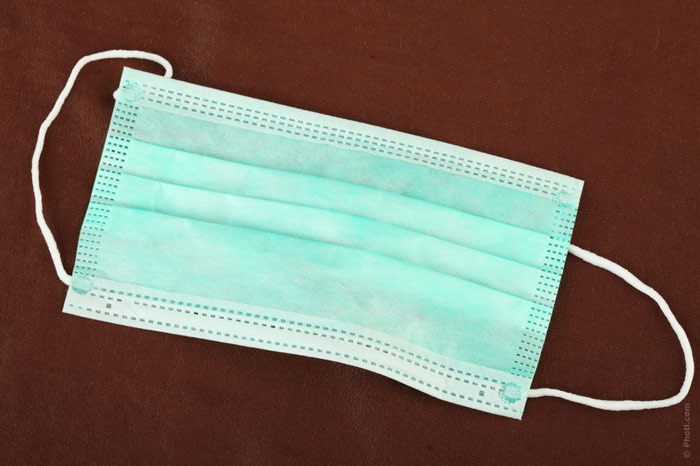Is Conception during Flu Dangerous?
Pregnancy planning is an important and crucial period. But along with natural emotions of joy and pleasant expectation, the would-be mother often feels anxiety and excitement in the beginning of pregnancy. One of the reasons may be that conception occurred during flu.

In which cases do women typically conceive during flu?
Due to the nature of physiological processes of pregnancy, a woman finds out about it 2-3 weeks after the conception. Then, when you have done the proper calculations, you often realize that you were unwell in the time of the alleged conception.
This is especially the case with the long-awaited and planned pregnancy. Doctors give this phenomenon a logical explanation and name two main reasons:
Psychological
When a couple has been planning a pregnancy for a long time, preparing, following the cycle, calculating favorable days for conception, this “obsession” sometimes prevents pregnancy. When a woman realizes that she has caught a cold, and it is not the best time for conception, she lets go of the situation, and – gets pregnant.
Physiological
One of the numerous causes of infertility may be an overly strong immune system, which rejects “foreign” antibodies. When you have a cold, the immune system is weakened and does not prevent pregnancy.
How can flu affect child development and the course of pregnancy?
Here, much depends on the disease and the drugs used. At conception, health of both partners is important, but a woman’s disease has a stronger impact.
If a man falls ill
- ARVI symptoms without fever are unlikely to affect the quality of sperm.
- However, a cold or flu with fever up to 38 degrees and above will affect sperm mobility, its quantity and quality. But since sperm in men matures for more than a month, those sperm cells that survive and fertilize the egg, will not affect the child’s development.
- Thus, when a man is sick with flu, it can significantly reduce the chance of fertilization, but if it happens, then there is nothing to fear.
If a woman is sick:
Female body is a kind of vessel, in which the child grows and develops, so even a common cold should be taken seriously.

Conception during ARVI or flu in women
Conception during ARVI without fever:
- ARVI symptoms (cough, runny nose, nasal congestion, sore throat) at normal body temperature will not affect your pregnancy or the child’s development.
- It is important to take immediate action and prevent further progression of the disease. However, mind that you can only take the drugs that are approved for early pregnancy stages.
Conception during ARVI accompanied with fever:
- If conception has occurred, and the fertilized egg attached itself to the uterine wall, the disease produces no adverse effects on the unborn baby.
- The main task is to begin treatment immediately to prevent further progression of the disease and its complications. You should only send body temperature down when it exceeds 38.5 ºC . Paracetamol-based antipyretics are allowed.
Conception during flu
Sudden onset, fever, headache, and joint aches – flu symptoms do not favor conception. However, fertilization can occur 36 hours after the sexual intercourse, so you can avoid the scenario where conception occurs during flu.
The main problem here is to recover as soon as possible and prevent complications. It is necessary to remove the toxicity by drinking much and staying in bed. Call a physician and be sure to warn him or her about the possible pregnancy, so that the doctor prescribes medications that are compatible with it.
In any case, if fertilization occurred, and the egg has attached itself, then the disease has probably gone without consequences.
In this term, the principle of “all or nothing” operates. If the unborn child was affected by viruses or drugs, and something went wrong, then most likely, there would be a spontaneous miscarriage. A woman may not even notice that there had been a pregnancy and take the miscarriage for a regular menstruation.
Thus, a disease is not likely to affect conception, the ensuing pregnancy or fetal development.
But if you are planning a pregnancy and you have caught a cold – carry on with your plans, but only if you have light symptoms.
If there is a fever or flu-like symptoms, postpone pregnancy planning until the next cycle.
In fact, treatment during pregnancy limits the choice of drugs, and if the disease is complicated or prolonged, it poses a great risk for the fetus. The most responsible and the most dangerous period is the first trimester, when the baby’s body systems are formed, especially 4th -9th weeks.
The period, in which conception occurs – second to fourth obstetric week – is not so dangerous for the unborn child in terms of impacts, as in this period the fertilized egg grows and develops independently, and the effect of viruses and drugs is minimal. However, sometimes it is very difficult to establish the date when fertilization occurred and, respectively, to calculate the exact date, up to which the unborn child is protected, so you will not know for sure.
Even greater damage can be caused not by the disease itself, but by the drugs that the woman takes for treatment.

Prevention of diseases and taking drugs in early pregnancy
If there is a probability of conception, it is best to use medications that are allowed in early pregnancy:
For a cold:
- washing the nose with the products based on sea water;
- nose drops based on herbal medicines;
- nasal congestion is treated by hot hand baths (however, hot foot baths are contraindicated).
For cough:
- inhalation via nebulizer (saline or mineral water);
- steam inhalation (chamomile, sage);
For a sore throat:
- rinsing the throat with sodium and salt solutions;
- rinsing the throat with a herbal infusion (chamomile, sage, calendula).
Antivirals:
- syrup and rose hip infusion;
- Eleutherococcus tincture.
Also it is necessary to adhere to the general rules:
- abundant warm drinking (cranberry juice, weak tea with lemon);
- frequent ventilation of the room;
- bed rest;
- light and low-fat food.
When planning pregnancy, much attention should be paid to the prevention of acute respiratory viral infections and influenza:
- avoid crowded places, especially during epidemics;
- take preventive measures in public places (lubricate the nasal passages with special ointment and wear a surgical mask);
- take vitamins and mineral complexes.
